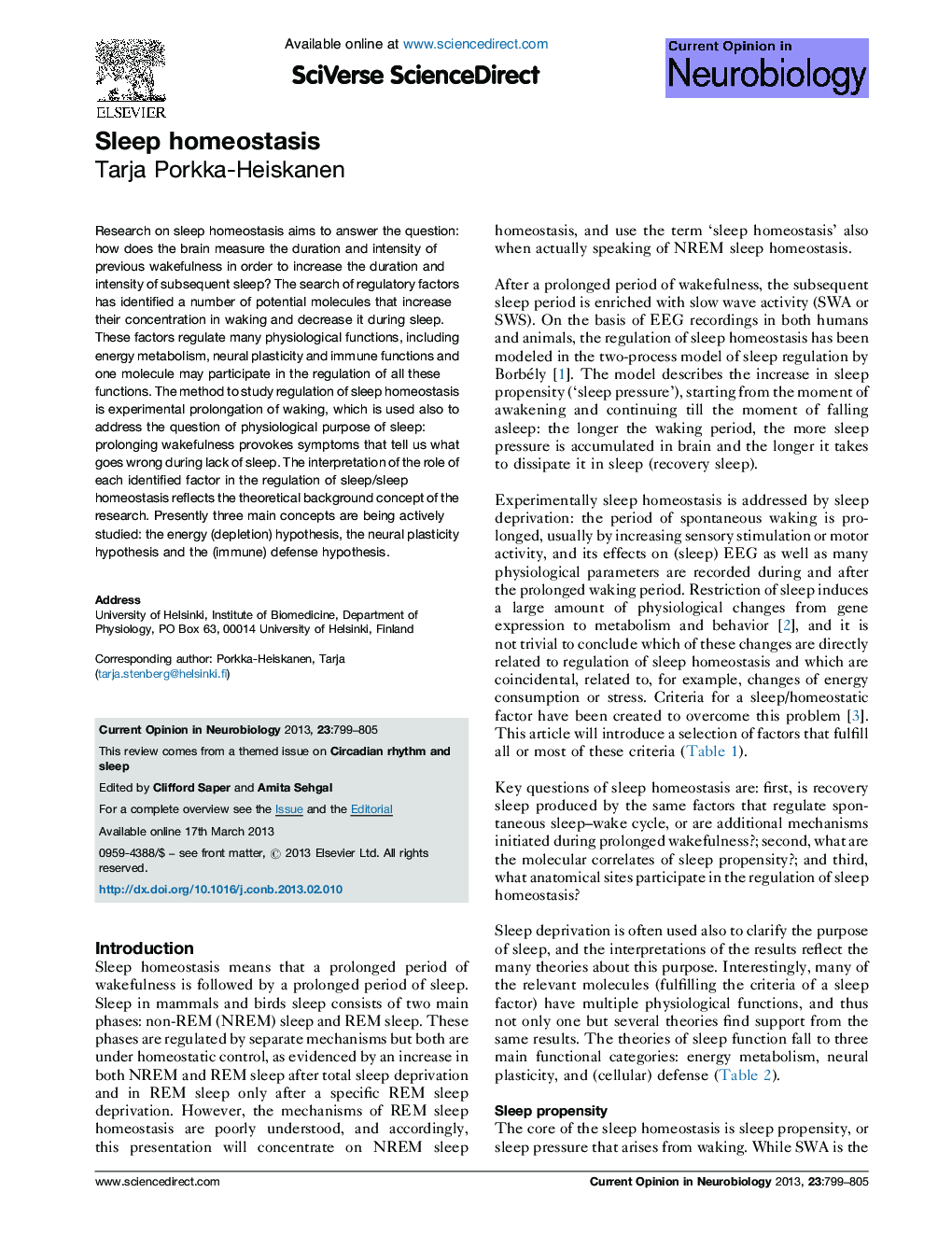| Article ID | Journal | Published Year | Pages | File Type |
|---|---|---|---|---|
| 6266608 | Current Opinion in Neurobiology | 2013 | 7 Pages |
Abstract
Research on sleep homeostasis aims to answer the question: how does the brain measure the duration and intensity of previous wakefulness in order to increase the duration and intensity of subsequent sleep? The search of regulatory factors has identified a number of potential molecules that increase their concentration in waking and decrease it during sleep. These factors regulate many physiological functions, including energy metabolism, neural plasticity and immune functions and one molecule may participate in the regulation of all these functions. The method to study regulation of sleep homeostasis is experimental prolongation of waking, which is used also to address the question of physiological purpose of sleep: prolonging wakefulness provokes symptoms that tell us what goes wrong during lack of sleep. The interpretation of the role of each identified factor in the regulation of sleep/sleep homeostasis reflects the theoretical background concept of the research. Presently three main concepts are being actively studied: the energy (depletion) hypothesis, the neural plasticity hypothesis and the (immune) defense hypothesis.
Related Topics
Life Sciences
Neuroscience
Neuroscience (General)
Authors
Tarja Porkka-Heiskanen,
